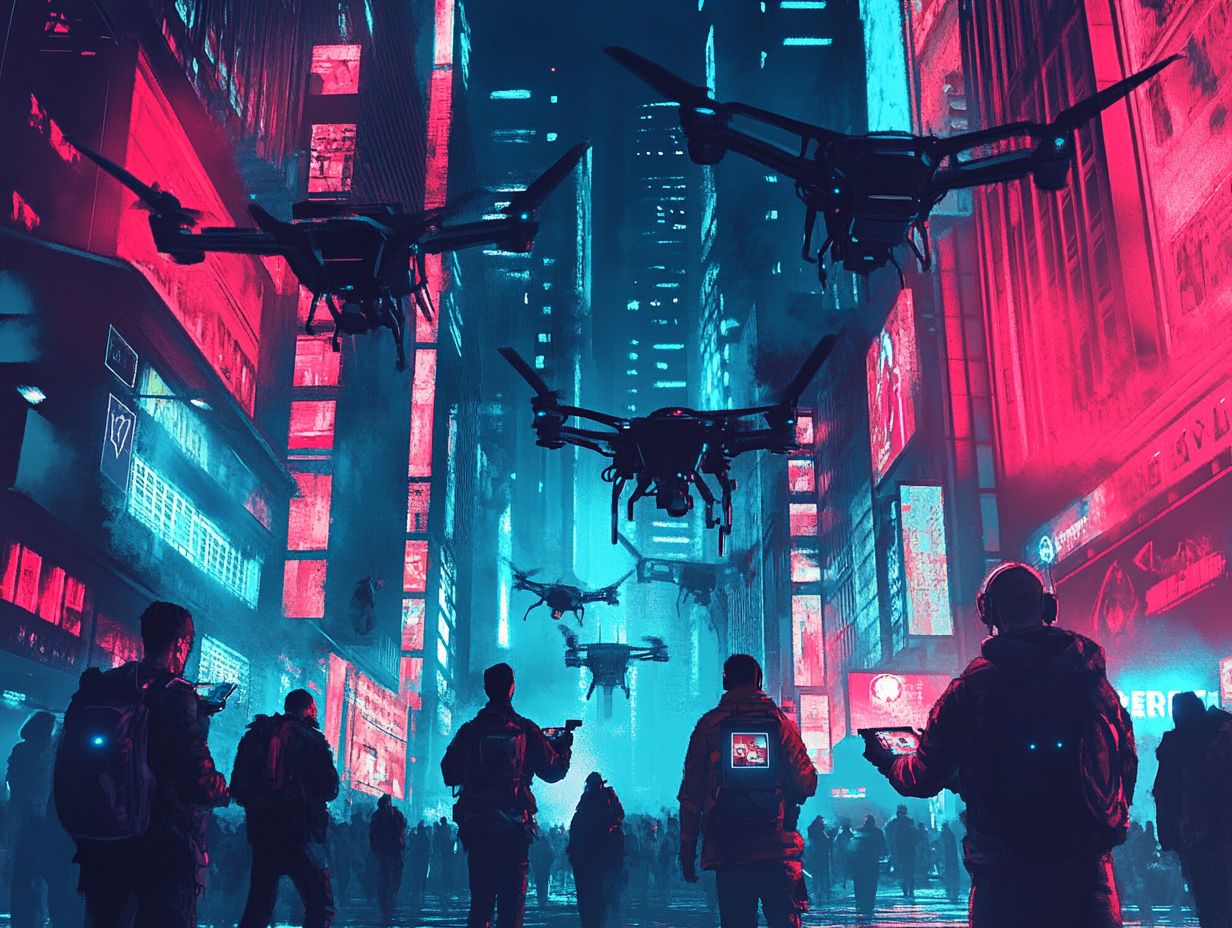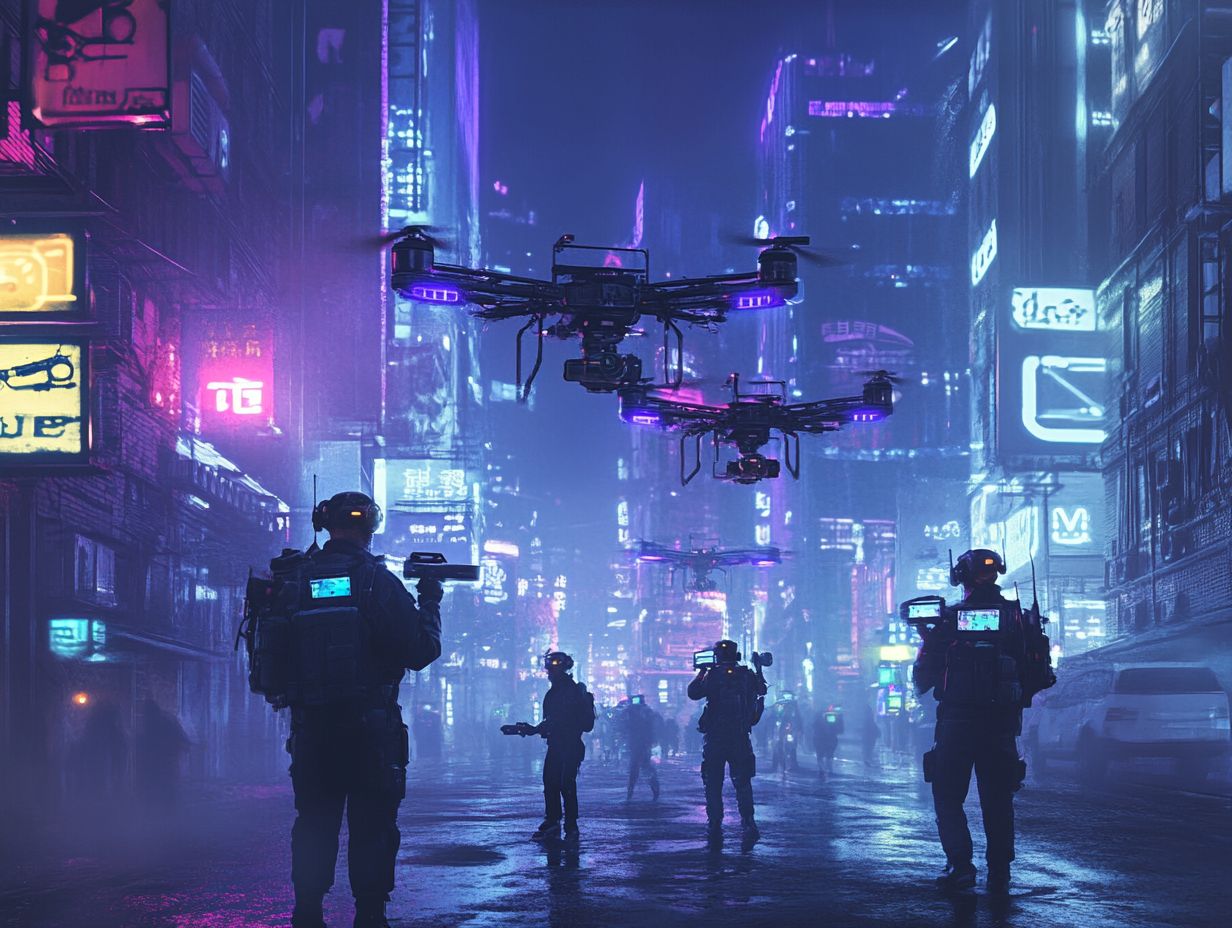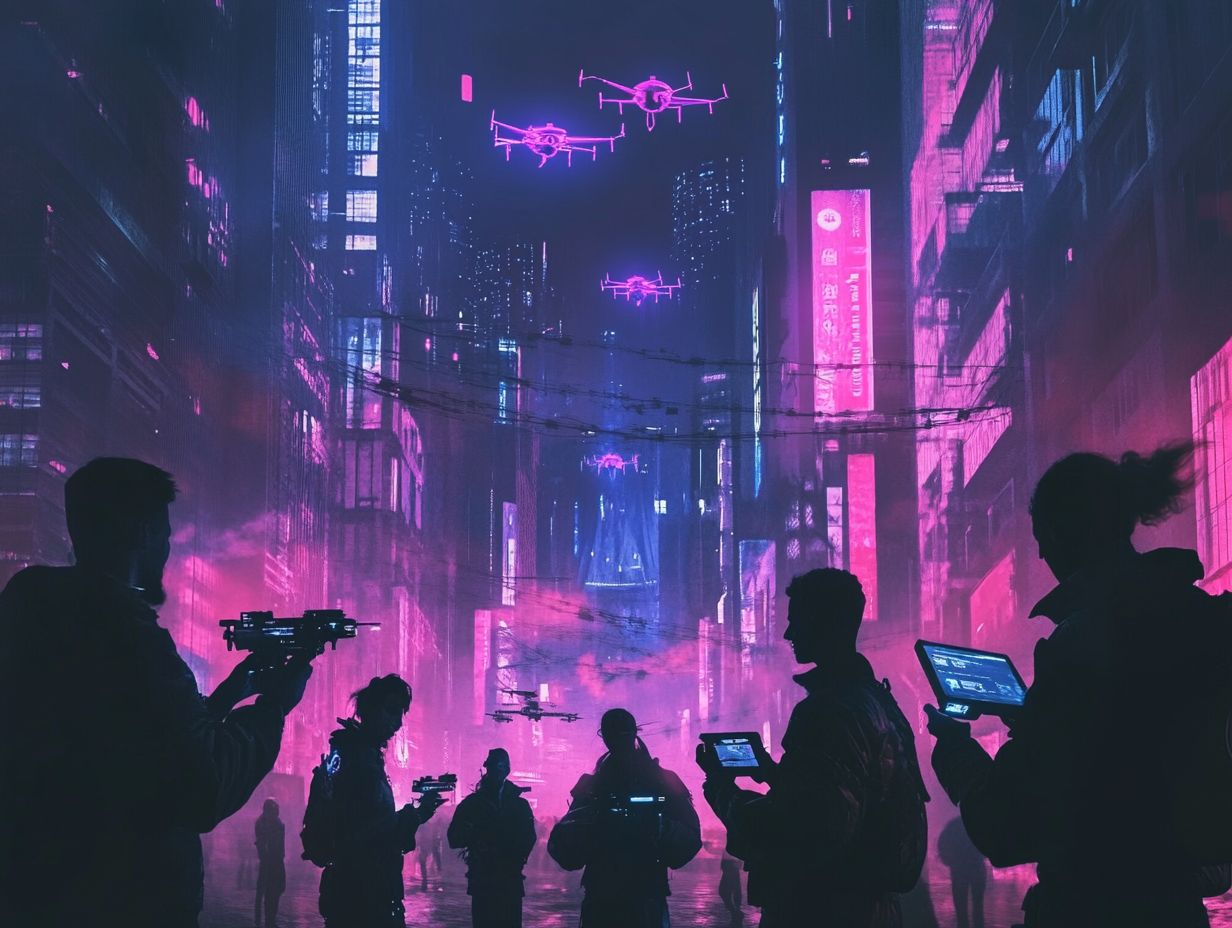Defining Dystopian Worlds

Dystopian worlds are defined by oppressive regimes that impose authoritarian control and systemic dominance over their citizens. Dystopian literature and films frequently portray societies manipulated by these oppressive powers, set against a backdrop of fear, inequality, and alienation.
The narratives explore themes such as surveillance, propaganda, the struggle for autonomy and freedom, and the failure to uphold basic human rights and needs. These dystopian settings serve as cautionary tales about the dangers of unchecked authoritarianism and the indifference of society to the erosion of fundamental human rights.
They emphasize the complex realities surrounding human rights and freedom of expression, as well as the often perilous climate of fear and manipulation that exists within these societies. The following are characteristics commonly found in dystopian societies.
Characteristics and Examples
Dystopian societies exhibit a variety of characteristics, including oppressive governments, mass surveillance, censorship, and pervasive social disconnection. These societies are often employed as a lens to explore deeper themes of human nature, such as the human spirit’s response to hopelessness and the ways in which dependence on technology can lead to social isolation and disenablement.
Censorship plays a crucial role in many dystopian societies, frequently used to suppress dissent and questions directed at the ruling authority. Additionally, mass surveillance and constant monitoring of citizens’ behavior create a pervasive sense of paranoia within these worlds. Censorship is often intertwined with technology to further oppress the populace.
Social disconnection is another prevalent theme in dystopian narratives; in many contemporary dystopian films, social media serves to exclude individuals from society rather than foster connections. The result is a world where technology, originally intended to unite society, is instead weaponized against it.
The Impact of Technology on Dystopian Societies

As previously mentioned, technology exerts a significant influence on dystopian societies, both in how it is wielded against the oppressed and as a means of controlling behavior and norms among the populace.
Ultimately, the role of technology in these societies raises important ethical questions regarding privacy, autonomy, and innovation. As digital technology, artificial intelligence, and biometric surveillance become more widespread, we must confront the ways in which these systems manipulate human behavior and shape our understanding of social norms, as well as our capacity to resist them.
Advancements and Consequences
Advancements in technology, particularly in automation and artificial intelligence, have significant implications for human rights and societal structures, often exacerbating socio-economic disparities and spreading misinformation. While the increasing reliance on technology can foster a sense of escapism, it also raises important questions about the balance between innovation and ethical considerations in our future societies.
As we navigate these advancements, it is crucial to assess their potential to either enable communities or deepen the divisions created by surveillance and control.
Additionally, there is growing concern about the implications of autonomy in an era where machines increasingly dictate our actions and choices. This reliance on technology risks leading to ecological collapse, as solutions that prioritize convenience often overlook the necessity of environmental sustainability.
In response, a rising wave of resistance is emerging, as many individuals fear losing their agency to algorithms and automated systems that prioritize profit over people. Therefore, society finds itself at a crossroads, where it must carefully evaluate the dual nature of technological progress—identifying pathways for positive transformation while safeguarding social equity and environmental health.
Technology as a Tool of Oppression

In modern society, the use of technology frequently leads to oppression, as authoritarian governments employ complex surveillance and manipulation systems to exert control over their citizens. Both governments and corporations utilize technology to monitor behavior, disseminate misinformation, and suppress dissent, often relying on propaganda techniques to maintain their power.
This growing dependency on technology heightens the risks of social isolation, fear, and repression, undermining the ideals of freedom and autonomy that are central to a democratic society.
Examples of Technological Control
Technological control in dystopian societies is exemplified by mass surveillance systems, such as facial recognition cameras and public access digital recorders that monitor citizens’ every move, as well as algorithms that manipulate public opinion through social media platforms. George Orwell’s ‘1984’ vividly illustrates this with the omnipresent telescreens, which symbolize the government’s invasive reach and the extreme measures authoritarian regimes will take to maintain power and suppress dissent.
Contemporary parallels can be found in data privacy violations and misinformation campaigns that disenable individuals and communities. The pervasive fear generated by these technologies erodes trust within communities and alters how people perceive their digital identities.
This psychological impact is intensified by constant surveillance and the manipulation of personal data, often leading to feelings of helplessness and anxiety. For instance, contemporary literature that critiques our reliance on technology frequently highlights how online spaces have become battlegrounds for authenticity, where individuals strive to maintain genuine identities amidst a sea of curated personas.
As the ramifications of living under such scrutiny become increasingly evident, a collective response will be essential to foster discussions about digital rights and the ethical responsibilities of those who wield such technology.
Technology as a Source of Hope

While technology can be used to control people, it also has the potential to create solutions and platforms that combat oppression and authoritarianism, as well as promote social justice.
The rise of online activism and virtual communities demonstrates how digital connectivity can enable individuals to organize, share information, and drive collective action and resilience against oppressive regimes.
This duality of technology underscores its capacity for positive social change, challenging the narrative that equates technological progress solely with oppression and despair.
Potential Solutions and Positive Uses
Potential solutions and positive uses of technology involve leveraging its capabilities for online activism, creating platforms that amplify marginalized voices, and fostering a sense of community and resistance against oppression.
Initiatives focusing on ethical technology and data privacy enable individuals by providing them with tools for self-advocacy and collective action. As we explore these solutions, it becomes clear that technology can serve as a catalyst for change, bridging the digital divide and promoting a more equitable future.
Numerous notable examples demonstrate how social movements have effectively utilized digital channels to enhance freedom of expression and galvanize support for important causes. For instance, platforms like Twitter and Facebook have played a crucial role during protests, offering real-time updates and facilitating global solidarity.
Meanwhile, grassroots campaigns often harness crowdfunding sites to mobilize resources swiftly. The promise of technology is evident in projects like digital literacy programs, which enable individuals in underserved communities by equipping them with essential skills to advocate for their rights effectively.
These advancements highlight that technology, when aligned with a commitment to social justice, can lead to transformative outcomes that resonate far beyond the screen.
The Role of Individuals in Shaping Dystopian Worlds
In dystopian worlds, the role of individuals is significant, as their agency and responsibility can serve either to reinforce oppressive systems or to resist those systems in the pursuit of freedom and human rights.
Individuals possess the power to challenge authoritarian narratives by acting on their personal and collective sense of justice and moral obligation. During times of crisis, individuals can become sources of inspiration for collective movements, demonstrating that even in the most hopeless situations, hope and resistance can prevail.
Responsibility and Agency
Responsibility and agency are essential concepts that describe how individuals can resist dystopian forces while promoting human rights and social justice. By recognizing their capacity to take action, individuals can challenge oppressive structures, organize for change, and foster a culture of resistance against injustice.
This sense of agency enables communities to reclaim their narratives and assert their rights in the face of systemic oppression. Individual responsibility serves as a catalyst for broader social change, as exemplified by the Black Lives Matter movement and youth-led climate activism around the globe.
These movements illustrate that everyone has the power to make significant decisions. Ethical technology initiatives further support this by providing tools that amplify voices and enhance social justice efforts. More and more, people are driven by moral imperatives and realize that their involvement is crucial for dismantling inequities and creating spaces where every voice is valued.
Ultimately, it is this collective will that brings about lasting transformation and fosters a more equitable future.


